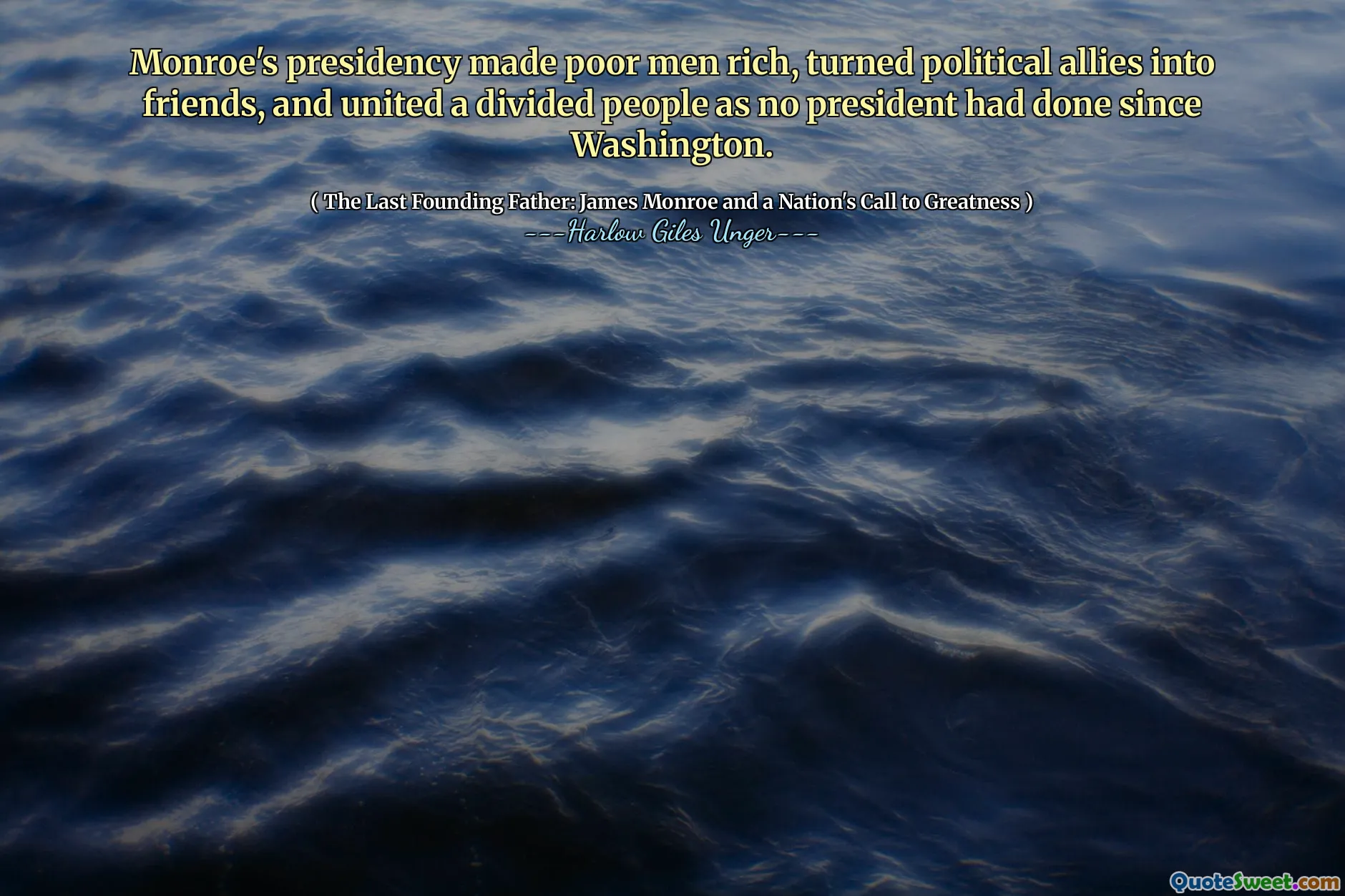
Monroe's presidency made poor men rich, turned political allies into friends, and united a divided people as no president had done since Washington.
Monroe's presidency is highlighted as a transformative period that brought prosperity to the lower classes, elevating economic conditions for poorer citizens. His leadership style fostered deep political alliances that evolved into genuine friendships, creating a spirit of collaboration and camaraderie among diverse factions. This approach contributed to national unity, an essential achievement considering the divisions that had surfaced in American society.
Unger emphasizes how Monroe's presidency reignited a sense of togetherness amongst the populace, a feat not accomplished by any leader since George Washington. Through his policies and diplomacy, Monroe effectively bridged the gaps within the nation, paving the way for increased harmony and collective progress. His era serves as a testament to the possibility of reconciliation and growth in a tumultuous political landscape.











